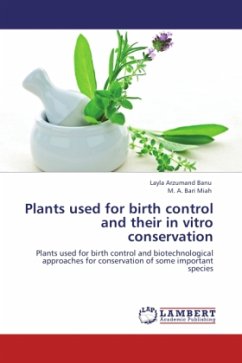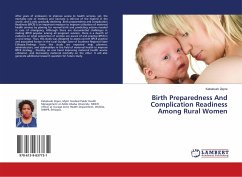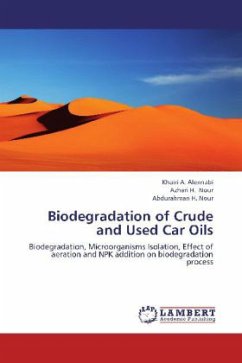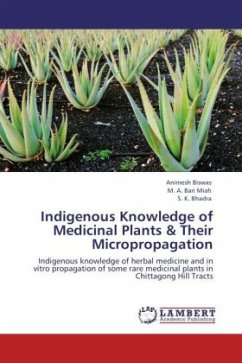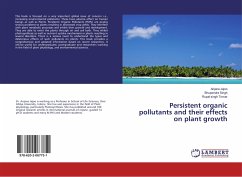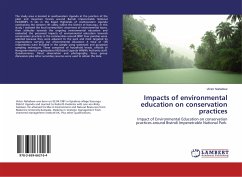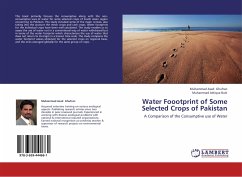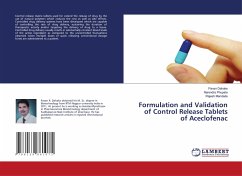A study was undertaken to address the indigenous knowledge of herbal use in birth control in rural and tribal areas in Bangladesh. Total 152 persons (local herbalists, birth attendants and other knowledgeable person for birth control by herbal medicine) were interviewed. A number of 62 plant species belonging to 38 families were identified for the use of birth control. Highest score in rarity was recorded for seven species, i) Abrus precatorius ii) Andrographis paniculata, iii) Ferula asafoetida iv) Gloriosa superba v) Piper nigrum, vi) Plumbago indica and vii) Plumbago zeylanica. In vitro regeneration was studied in five species, Mimosa pudica, Piper longum, Gloriosa superba, A brus precatorius and Leonurus sibiricus. Artificial seeds were produced by encapsulating shoot tip and nodal segments of Mimosa pudica with sodium alginate.

